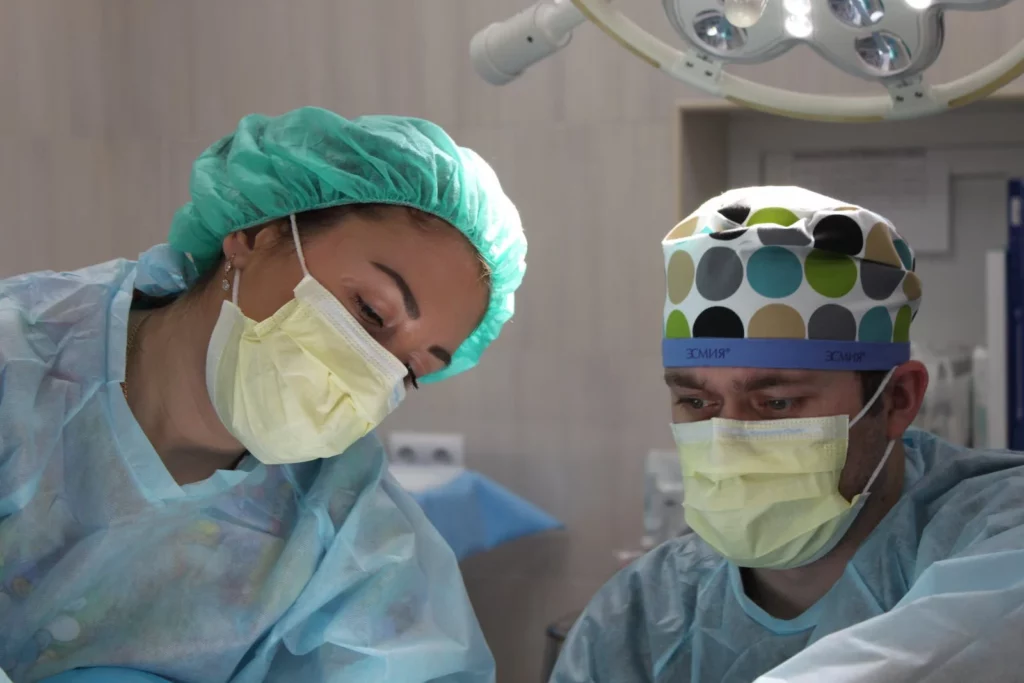Nursing is a diverse and rewarding career that is in high demand throughout Canada. If you’re looking to become a practical nurse and join the health care team in Canada, there are several important steps you need to take.
How to study practical nursing in Canada?
Becoming a registered practical nurse in Canada is a rewarding and worthwhile experience. Those considering this career should research practical nursing programs that are recognized by the regulators of practical nursing in their region.
Once accepted into one of these programs, practical nursing students will learn and practice the skills necessary to assess clients perform nursing interventions in acute care, have clinical experience, and be successful as part of a healthcare team. Practical nurses are vital to healthcare in Canada, so upon completion of the educational program, practitioners will have access to meaningful and rewarding work opportunities.

What is the role of a practical registered nurse in the health care team in Canada?
In Canada, registered practical nurses play a vital role in patient safety by assisting registered nurses and medical practitioners deliver health care. Practical nurses are specialized healthcare professionals that care for patients throughout their course of treatment.
They provide direct patient care such as monitoring vital signs, dressing wounds, helping with rehabilitation plans, and administering medications under the direction of registered nurses or physicians must
Qualified registered practical nurses also must keep detailed records of patients’ medical history and report their observations to registered nurses and doctors to assess the patient’s progress.
Furthermore, registered practical nurses may offer support services to promote health, such as educating patients on self-care procedures which is a crucial component for improving overall mental health and outcomes.
How many years is a practical nursing program in Canada?
A practical nursing program in Canada is typically two years in length. The program focuses on equipping nurses with the clinical knowledge and practical skills that are necessary for joining the health care team.
During the practical nursing program, students participate in a series of lectures and hands-on clinical practicums and can expect to gain specialist knowledge in areas such as anatomy, pharmacology, and community health.
After successful completion, practical nurses gain a quality education and gained valuable training that opens up numerous career opportunities within healthcare settings.
What is the fee for practical nursing programs in Canada?
Practical nursing programs in Canada can range from $1,500 to $20,000 depending on a variety of factors including the province in which you are studying and the length of the program.
A Canadian nurse is trained in health care settings to provide superior direct health care services to diverse patient populations. The cost of such a program varies depending on the institute of choice and sometimes also scholarships and special offers are available that reduce overall cost.
Additionally, some clinical experiences, placements, and equipment costs may be added onto the fee structure which makes it important for students to inquire about and research related programs thoroughly before making any commitments.
An Overview of RN and RPN Nursing in Canada
In Canada, one of the most popular professions within healthcare is nursing. But what exactly is the difference between a Registered Nurse (RN) and a Registered Practical Nurse (RPN)? Let’s break it down.
Responsibilities of an RN vs. an RPN
Registered Nurses are responsible for providing professional care to patients in hospitals, clinics, extended care facilities and other health-care locations. They are responsible for assessing patient health needs and developing nursing care plans based on those needs.
On the other hand, Registered Practical Nurses are responsible for providing basic nursing care to patients in a variety of healthcare settings such as hospitals, long-term care facilities and community health centers.
Difference in Education Requirements
The education requirements for becoming a Registered Nurse vary from province to province but generally include completing a two-to-four year college program in nursing followed by passing an exam to obtain a license from the provincial regulatory body in order to practice as an RN. In contrast, becoming an RPN requires completion of a two year college program followed by obtaining certification from the provincial regulatory body in order to practice as an RPN.
summary:
Both Registered Nurses and Registered Practical Nurses play key roles in providing quality healthcare services across Canada; however there are some distinct differences between them including responsibilities and educational requirements. If you’re considering entering the field of nursing it’s important to understand these differences before making your decision about which profession is right for you.
Can I do a practical nursing diploma program in Canada?
If you’re looking to study nursing in Canada, then a diploma is a great option. Many colleges across the country systematically and holistically focus on pre health sciences, helping learners develop their knowledge of human anatomy and healthcare practices in a systematic and holistic manner.
A diploma in nursing can also give you a solid foundational understanding that will provide you with the ability to become a registered nurse should you choose to pursue further studies in this field.
In addition, those looking to join Canada’s growing healthcare system can benefit greatly from such advanced diplomas, to easily transition into roles as Registered Practical Nurses or Licensed Practical Nurses.

How much does a diploma in nursing cost in Canada?
The cost of obtaining a diploma in nursing in Canada can vary. Healthcare settings are unique and typically the health care team has its own individualized program for potential nurses to become part of their health care community.
For example, if you are considering a practical nurse or nursing diploma program in Canada, you can expect to pay between $3,500-$12,000 depending on your geographical region and the type of health care environment.
In any case, it’s important to research thoroughly before making your financial commitment so that you can make sure the program best meets your healthcare career goals.
A Timeline Breakdown of Becoming a Nurse in Canada
If you are interested in becoming a nurse, you may be wondering what is involved and how long it will take. Here’s an overview of the timeline for becoming a Registered Nurse (RN) in Canada.
RN Education Requirements
Depending on where you live, this could include completing an undergraduate or graduate degree program, such as a BScN from a college or university. It is important to note that each province and territory has its own education requirements for RNs and these can vary significantly from one jurisdiction to another.
RN Registration Requirements
Once you have completed your education requirements, you must then register with your provincial regulatory body—for example, the CNO in Ontario—in order to become an RN in Canada. Each regulatory body will have its own set of registration requirements that must be met before you can practice as an RN. Generally speaking, this will involve submitting various documents and undergoing criminal background checks. Once your registration application has been approved by the appropriate regulatory body, you can start working as an RN in Canada.
Licensure Requirements
After registering with your provincial regulatory body and completing any additional licensure requirements such as exams or continuing education courses, you are officially ready to practice as an RN.
All told, it typically takes between three and four years to become a Registered Nurse (RN) in Canada after meeting all the necessary educational and registration requirements. However, it is important to remember that each province/territory has its own set of rules and regulations regarding licensure so it is best to check with your local regulatory body for more information before undertaking any nursing studies or training programs.
What is the fee structure of nursing courses in Canada?
The cost of pursuing a nursing degree in Canada depends on several factors such as: the college of nurses, or university you select. Colleges and universities charge annual tuition and general fees fees for nursing courses ranging from $7,000-$20,000 depending upon the college of nurses program.
Additionally, there is a fee to be paid to the college of the nurses for licensing which can range from $175 – $500 depending upon region.
Furthermore, students may need to budget additional costs such as textbooks, clinical supplies and living expenses during their studies. Ultimately, it can be said that the fee structure of nursing courses in Canada will vary depending on different components but the overall cost of a nursing degree college or university can be estimated between $10,000 – $25,000 per year on average.
A Guide for International Nurses Looking to Work in Canada
Becoming a nurse in Canada can be a complicated process. There are a few things you need to know about Canadian health care settings before starting the process, such as which provinces accept foreign-trained nurses and how to apply for the necessary documents.
Let us provide an overview of what you need to do if you are an international nurse looking to work in Canada.
Step 1: Check Your Eligibility as an International Nurse
The Canadian government has established specific criteria and admission requirements that need to be met by prospective nurses who have been trained outside of the country. These requirements include completion of all training and certification, meeting minimum eligibility requirements, passing a language test, and proof that all relevant nursing licenses have been obtained from both the regulatory body in your home country and the province or territory in which your credentials must be recognized.
Step 2: Assess Your Credentials
Before applying for licensure in Canada, your credentials must be assessed by the appropriate body. For example, if you have trained outside of Canada but within North America, then your credentials should be assessed through the National Nursing Assessment Service (NNAS).
If you have trained outside of North America, then your credentials should be assessed through the Canadian Alliance of Regulatory Bodies (CARB). Once your credentials have been assessed successfully, then you can proceed with applying for licensure with the applicable regulatory body.
Step 3: Obtain Licensure as a Nurse in Canada
Once your credentials have been successfully assessed, then you can apply focensure with the applicable provincial or territorial regulatory body. Each province has its own application process and timeline; some may require additional steps such as passing additional exams or completing additional training courses before obtaining licensure.
Additionally, some provinces may require that you obtain a visa prior to applying for licensure; this is especially true for international students who plan on working in Canada after graduation. Be sure to familiarize yourself with each province’s minimum eligibility criteria and requirements before applying for licensure.
The process of becoming a nurse in Canada can seem daunting at first glance but with proper research and preparation it doesn’t have to be. By understanding which provinces accept foreign-trained nurses, assessing your credentials through either NNAS or CARB (depending on where you trained), and obtaining licensure with the applicable provincial/territorial regulatory body, any international student interested in becoming a nurse in Canada can do so easily and efficiently.
With these steps outlined above, there’s no reason why anyone shouldn’t pursue their dreams of becoming a nurse here in beautiful Canada.





